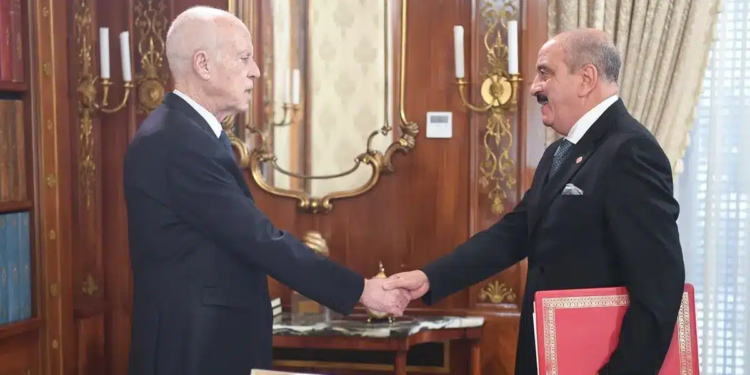President Kaïs Saïed received, Friday, November 14 at the Carthage Palace, the Minister of Foreign Affairs, Mohamed Ali Nafti. At the center of the discussions: several international agreements that the head of state considers harmful to Tunisian interests. Saïed also reaffirmed the foundations of Tunisian foreign policy and called for strengthening the supervision of Tunisians abroad.
Agreements deemed harmful: the desire for an in-depth review
During the meeting, Kaïs Saïed insisted on the need to review a set of agreements concluded by Tunisia over the years, which he considers “seriously detrimental” to the national economy.
According to the presidency, certain international commitments have weighed on several sectors, weakening the country’s balance and limiting its strategic room for maneuver.
The Head of State asked that these texts be re-evaluated “in the exclusive interest of the nation”, while recalling that Tunisian foreign policy must remain guided by sovereignty, independence of decision and the protection of national resources.
Reaffirmation of non-alignment and constitutional principles
Kaïs Saïed took advantage of the interview to recall the ideological and constitutional foundations of Tunisian diplomacy. Citing the preamble to the Constitution of July 25, 2022, he stressed that Tunisia refuses any form of alliance likely to compromise its neutrality or autonomy.
He also reiterated the rejection of any foreign interference in national affairs, calling for a diversification of international partnerships based solely on Tunisian interests. For the Head of State, this orientation marks a return to a more independent diplomatic line, centered on the preservation of the Tunisian model.
Support for the Tunisian community abroad: a priority issue
Another part of the meeting was devoted to the situation of Tunisians established outside the country. Kaïs Saïed asked the Ministry of Foreign Affairs to strengthen its action in favor of Tunisians abroad, calling for “redoubled efforts” to provide them with better administrative, social and consular support.
According to him, the diaspora represents an “essential pillar” of the nation, whose rights must be fully guaranteed and their needs better taken care of.
Read also








